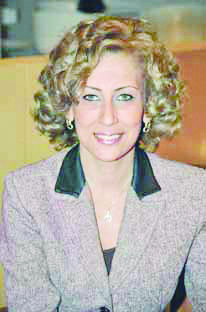By Rania Al Malky
CAIRO: Egypt’s first post-Mubarak parliamentary elections, some say, are too good to be true.
Despite reports of some violations, mainly centered around continued illegal campaigning by the two main Islamist parties, Freedom and Justice as well as Al-Nour, and to a lesser extent by the liberal Egyptian Bloc, as well as a single case of violence in Sharqiya, ironically perpetrated by military police against a youth candidate, these elections have been almost problem-free and clean.
Why then have skeptics insisted that even though there is no evidence to the contrary, the Egyptian people have been used as pawns in an elaborate chess game, their vote amounting to more than a footnote to a compact plot that will eventually push them back to the sidelines where they had been relegated for decades?
While I completely disagree with this extreme level of suspicion, I cannot help but see the justification for it.
Egyptians are getting mixed messages from the single authority that holds all the reigns of power, the Supreme Council of the Armed Forces (SCAF). On the one hand, many still believe that the army council agreed with the Muslims Brotherhood’s FJP to “give” them parliament and in return to relinquish any leverage they may have over the choice of president by vowing not to endorse any candidate.
At the same time, SCAF has set itself on a collision course with the FJP with recent statements later denied by other members of the ruling council (to add to the confusion) that parliament does not represent all Egyptians, intimating that the coming parliament will be stripped of all power. Some are even hypothesizing that this parliament will last no more than a few months, which to me will be a grave mistake. Indeed nothing is worse than no democracy at all, than too much democracy.
Any attempt to emasculate this parliament or to dissolve it and hold new elections before it is given full powers and the opportunity to implement its promised political, legal, administrative, social and economic changes will have two disastrous effects: First, to foment a loss of confidence in the democratic process as a whole, inadvertently leading to political apathy and a drop in participation that will take us back to the pre-Jan 25 square one; second, to perpetuate the perception that Islamists are under fire and hence continue to provide the optimum climate for polarization between conservatives and liberals, Muslims and Christians, and broadening the scope for the abuse of identity politics.
No matter what reservations we have about the next parliament which will clearly be dominated by Islamists of all stripes, it must still be given full authorities for no other reason than to test their performance on the ground once and for all and dispel the myths surrounding them, whether they paint them as larger than life and the panacea to all our problems, or as the biggest evil that the revolution (indeed that democracy) has inflicted on Egyptians.
Rania Al Malky is the Chief Editor of Daily News Egypt.



